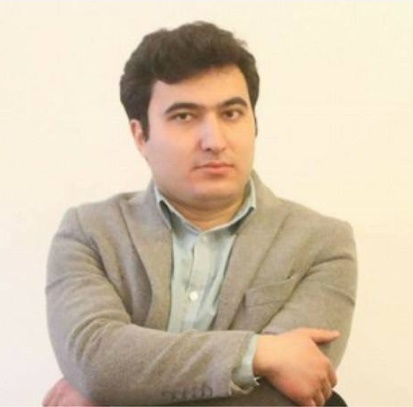
On December 23, at the Baku Court for Grave Crimes, the prosecutor requested a nine-year prison sentence for detained journalist Teymur Karimov. The prosecutor also proposed that he be found guilty under Article 182 (extortion by threat) and, as an additional punishment, be banned from engaging in journalistic activities for 2 years and 6 months.
The noteworthy aspect here is the proposal to ban the journalist from practicing his profession as an additional punishment.
What does this mean? Can a prosecutor demand a ban on journalistic activity? Is there a legal basis for such a request?
Incidentally, on December 28, Teymur Karimov was sentenced to 8 years in prison.
The director of the “Defender” Legal Center and lawyer Samad Rahimli responded to ASTNA's questions on the matter.
* * *
Question: Mr. Rahimli, recently, in court cases involving journalists, there have been calls for bans on their professional activities. For instance, the prosecutor sought a 9-year prison sentence for journalist Teymur Karimov and a 2-year 6-month prohibition on his journalistic activities. Can a prosecutor demand such a ban on journalistic activity?
 Answer: According to Article 46.1 of the Criminal Code of the Republic of Azerbaijan, the deprivation of the right to hold certain positions or engage in specific activities involves prohibiting the individual from holding particular positions in state or local self-government bodies or engaging in certain professions or other activities. This type of punishment can be imposed for a term of one to five years as a primary penalty and for one to three years as an additional penalty.
Answer: According to Article 46.1 of the Criminal Code of the Republic of Azerbaijan, the deprivation of the right to hold certain positions or engage in specific activities involves prohibiting the individual from holding particular positions in state or local self-government bodies or engaging in certain professions or other activities. This type of punishment can be imposed for a term of one to five years as a primary penalty and for one to three years as an additional penalty.
From Article 46.1 of the Criminal Code, it is evident that this is an additional type of punishment and is applied alongside the primary punishment. There are two alternative forms of this punishment: a prohibition on holding specific positions and a prohibition on engaging in specific professions. Depending on the accused person's position or profession, either of these penalties can be demanded in relation to them.
In this case, considering that Teymur Karimov is a journalist and the extortion charges against him are linked to his journalistic activities, the prosecutor can demand the application of this additional penalty.
Question: Can the court impose such a penalty?
Answer: Under Article 46.2 of the Criminal Code, considering the nature and social danger of the crime committed, as well as the personality of the guilty person, the court may deem it impossible for the individual to retain the right to hold certain positions or engage in certain activities and may impose this penalty as an additional measure, even in cases not specifically provided for in the relevant articles of the Special Section of this Code.
This provision indicates that the court evaluates the following factors comprehensively when imposing such a penalty:
- The nature and social danger of the crime.
- The personal characteristics of the accused.
In other words, if the court forms a negative opinion regarding the public danger of the accused person's actions and their personal traits, it may impose this penalty.
It is important to note that given the politically motivated nature of the charges against Teymur Karimov and his status as a political prisoner, the issue of applying this penalty becomes secondary. Like other political prisoners, the criminal case against Teymur Karimov contradicts the standards of fair justice. However, within a formalistic framework, both the prosecutor has the authority to demand this additional penalty, and the court has the authority to apply it.
Question: On what legal basis can the prosecutor or court make such a demand or decision?
Answer: As I mentioned earlier, these matters are regulated under Article 46 of the Criminal Code.
Question: What does international law say about this?
Answer: International law does not outright exclude professional bans. The key requirement of international law concerning professional bans is adherence to fair justice and the presence of factual grounds justifying the ban. However, as I mentioned, in politically motivated cases, such measures inevitably rely on baseless charges, making any penalty imposed on the detained journalist unjustified.
Question: Why is this being done? What conclusions can be drawn from it?
Answer: If baseless extortion charges are brought against journalists, formal legal procedures necessitate demanding the application of additional penalties such as professional bans. This is stipulated in the norms of the Criminal Code. The main issue here is to prevent politically motivated criminal cases and to avoid the abuse of criminal law for political purposes.













Leave a review